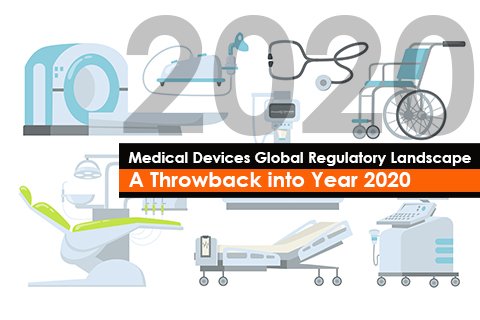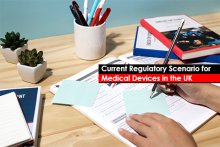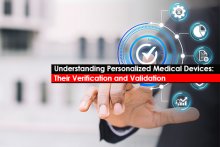Medical device industry has been a booming industry with new technologies being introduced from time to time and has been dynamic in terms of Regulatory landscape. The year 2020 has seen a major disruption due to the COVID-19 Pandemic and demanded the Health Agencies to gear up for addressing the pressing situation, thus impacting the Agency’s plan of action. There had been delays in implementation of new regulations, change in priorities requiring diversion of resources and staff, delayed reviews of applications and device approvals and release of new temporary rules and enforcement policies to accommodate the increased demand for COVID-19 supplies and devices. However, the Health Agencies have swiftly adapted to the imposed travel restrictions and moved to remote mode of conducting audits and postponed the non-critical audits related to surveillance. Below provided are a few updates from various global Health Agencies for the year 2020.
USA and Canada
The US FDA had released a significant number of guidance documents in 2020, in which, majority of them were in response to the COVID-19 pandemic. The Agency periodically updated all the documents, including Q&A documents, thus reflecting its stand during the pandemic and the impact of the pandemic on Regulatory functioning. Several enforcement policies had been released for ventilators, sterilizers, disinfectant devices, PPEs including, gowns, gloves, facemasks, respirators, clinical electronic thermometers, infusion pumps, various remote patient monitoring devices and software, bioburden reduction systems, Viral Transport Media (VTM) and others to facilitate reduced hospital visits, reduced human contact and to meet the increased demand for certain Class of devices.
The UDI implementation dates for standard date formatting, UDI labeling, GUDID data submission and direct marking requirements for Class I and unclassified devices have been extended till 24th September 2022.
Guidance on various ongoing programs have been released to facilitate the stakeholders understand and comply with the requirements. General guidance documents and guidelines on biocompatibility testing requirements of medical devices, basic safety and performance requirements for medical electrical equipment have been released for implementation of pilot program for Accreditation Scheme for Conformity Assessment (ASCA). To further facilitate the CLIA program, guidance on recommendations for dual 510(k) and CLIA application and CLIA waiver application for IVDs were released. The guidance on 510(k) third-party review programs has also been released.
In continuation to the performance criteria for safety and performance-based pathway introduced by the US FDA in 2019, device specific recommendations have been released for magnetic resonance receive only coil, spinal plating systems, orthopaedic non-spinal metallic bone screws and washers, cutaneous electrodes for recording purposes, conventional foley catheters. The recommendations for Pre-Market Notification (510(k)) submissions for bone anchors, electrosurgical devices for general surgery and device specific documents on micro needling devices, prescription point of use only blood glucose monitoring systems, OTC self-monitoring blood glucose systems, saline, silicone gel and alternative breast implants were released. The guidelines on carrying out Non-clinical assessment of Nitinol containing Medical Devices and labeling recommendation for breast implants were also released.
The US FDA had released ten (10) draft guidelines related to electromagnetic compatibility of medical devices; select updates for biocompatibility of devices in contact with intact skin; Pre-Market Notification (510(k)) submission guidance for peripheral percutaneous transluminal angioplasty and speciality catheters, peripheral vascular atherectomy devices, arthroscopy pump tubing sets intended for multiple patient use; clinical and non-clinical investigation of devices used in Benign Prostatic Hyperplasia (BPH); labeling guidance for laparoscopic power morcellators; performance criteria for safety and performance-based pathways for soft (hydrophilic) daily wear contact lenses. The final release of these guidance documents would require the device manufacturers to reassess their status of compliance and plan for remediation activities.
Health Canada had released and periodically updated Interim orders to facilitate import and sale of medical devices required for handling the COVID-19 pandemic and on handling the clinical trials under the pandemic. In line with Health Canada’s focus area, a new guideline was released on Post-market Surveillance (PMS) and risk management for strengthened scrutiny and vigilance of the devices being placed in the Canadian market.
Europe
The European Commission (EC) has adapted and relaxed the Regulatory requirements related to COVID-19 essential devices to facilitate uninterrupted supply in the EU market. Additionally, the competent Authorities have come up with country-specific requirements for approvals of these essential devices. The European Union (EU) has postponed the effective date for Medical Device Regulation (MDR) by one year, till 26th May 2021. In response to COVID-19, the MDCG has released guidance documents on Regulatory requirements for ventilators and related accessories; medical face masks; conformity assessment procedures for 3D printing and 3D printed products and other protective equipment.
The Medical Device Co-ordination Group (MDCG) has released various guidance documents in relevance to the EU MDR and IVDR implementation. Guidance on interpreting the classification rules listed for IVD under IVDR is released. Articles specific guidance documents have been released for Article 120 (3 and 4) of MDR, Article 54(2)b, and application of Article 18 under the EU MDR for Implant cards. A position paper on UDI assignment for spectacle lenses and ready readers has also been updated.
There has been progress in the EUDAMED implementation, as it was evident from the release of position papers on use of the EUDAMED actor registration module and of the Single Registration Number in the Member States and guidance on use of EMDN - nomenclature in EUDAMED. The Actor module of EUDAMED is now open for registration. The manufacturers, European authorized representatives and importers shall register in the database. The other modules of EUDAMED are expected to be released in 2021.
Significant number of documents for Notified Bodies and Clinical and Performance Evaluation of MDV and IVDs were released including templates for Clinical evaluation assessment report, PMCF plan template and PMCF evaluation report to assist the device manufacturers. Guidance on safety reporting in clinical investigations, sufficient clinical evidence of legacy devices, equivalence based clinical evaluation and clinical evidence and performance evaluation of Medical Device software under the MDR and IVDR were released.
The United Kingdom has exited the European Union and has announced the transition period till 31st December 2020. The UK MHRA will be responsible for overseeing the medical device regulations after the transition period and the Agency released several guidelines on Medical Device Regulations. More guidelines are expected to be released to facilitate the medical device manufacturers. Also, the MHRA has conducted webinars to detail on the new regulations facilitating the smooth transition.
LATAM
In LATAM markets, in response to the pandemic, provision for expedited registration of personal PPE, ventilators and other medical devices indicated for the prevention and treatment of COVID-19 had been established with a validity of one (1) year. ANVISA had established temporary procedures for MDSAP members for verification of BGMP compliance. The procedures for carrying out the onsite inspections of medical device manufacturing sites remotely were also released. ABNT (Brazilian association of technical standards) made available necessary standards, which gave approval for the rapid tests using registered kits. ANVISA had eliminated the Cadastro pathway for registration of Class II devices, which shall now be registered through Notificacao pathway.
COFEPRIS had prioritized COVID-19 devices and is applicable for limited applications and renewals. INDRE is responsible for assessment and approval of PCR tests for SARS-COV-2 for immediate registration and market approval. Such approval will be valid till the emergency period exists.
APAC
India – The CDSCO has eased the registration of COVID-19 related devices and had facilitated expedited registration of COVID-19 detection kits. A ban on export of facemasks had been imposed, to ensure the domestic demand is met and was revoked at a later part of the year. A new registration pathway of “Listing” has been implemented in 2020. The newly regulated devices now require to be listed, before they are completely regulated, requiring registration and approval for continued marketing or placing of device in the Indian market. The CDSCO had also released the classification document for all the newly regulated medical devices and IVDs.
Thailand - In response to the pandemic, the alcohol-based products are categorized as cosmetics instead of medical device to facilitate ease of approval and meet the increased demand. Thai FDA requires the manufacturers to submit specific documents for requesting a certificate for the import of medical devices related to COVID-19 treatment including the COVID-19 detection kits. Such devices would not require any further approval and is valid for two (2) years. The medical devices intended for donation are exempted from Regulatory registrations. Thai FDA has identified eight (8) groups of high-risk medical devices and directed the manufacturer or importer to obtain a license, before placing them in the market.
Sri Lanka - To ensure the adequacy of domestic supplies, the export and re-export of disposable masks and N95 masks were prohibited, without the prior written approval from the NMRA. Apart from face masks, no other product was issued with waiver of registration. The NRMA had been communicating with the stakeholders through e-NMRA portal, facilitating minimal office visits and reduced human contact. The Agency had extended the validity period to cease the movement of the people and had restricted the application for the inspection of the new manufacturing sites, due to the international travel ban imposed by various countries. The applications for site approval license and sample import license shall be applied through e-NMRA portal and applications for medical device registration and renewals are required to be submitted manually.
Undoubtedly, the year 2020 had been a witness to plenty of Regulatory reforms, due to a sudden outbreak of the COVID-19 pandemic. Irrespective of the pandemic challenges, the global Health Authorities ensured to stand by the compliant Regulatory standards and policies, in order to improve the safety and efficiency of the medical devices. Accordingly, we are anticipating that the coming year 2021 will enfold many more regulations, with the rapid and evolving technological developments in the medical device industry. Freyr, as a proven Regulatory service provider for Medical Devices, will keep you posted about all the global Regulatory updates as and when they get updated. Stay informed. Stay compliant.





